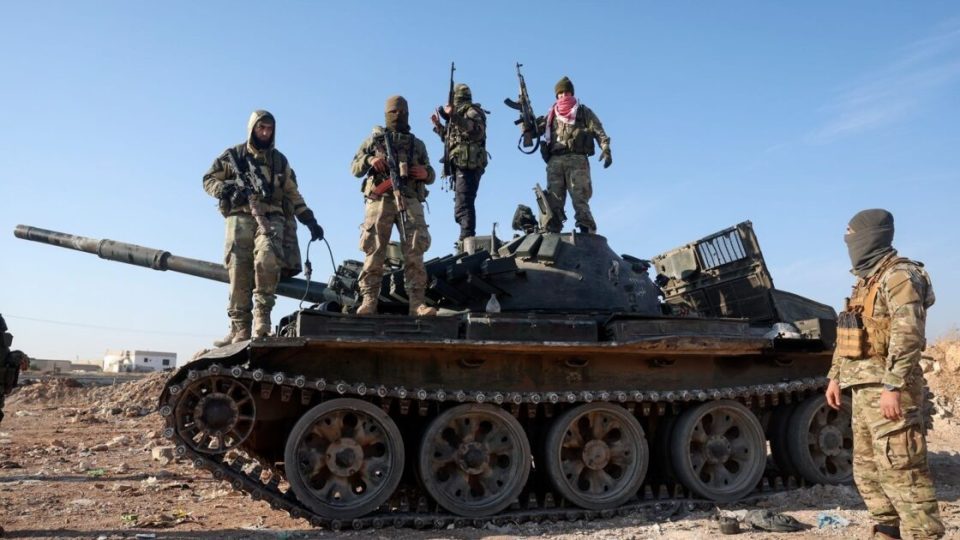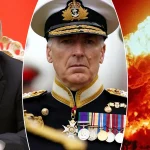Syrian rebels have claimed full control of the city of Hama following the military’s withdrawal, marking a significant setback for President Bashar al-Assad.
The leader of the Islamist militant group Hayat Tahrir al-Sham (HTS), Abu Mohammed al-Jawlani, announced “victory” in Hama and pledged that there would be “no revenge.”
HTS fighters, along with their allies, successfully stormed Hama central prison, freeing inmates during fierce confrontations while the military redeployed forces outside the city. Hama, which is home to approximately one million people, is located 110 km (70 miles) south of Aleppo, which fell to rebels last week amid a surprising offensive from their stronghold in northwestern Syria.
In a message to residents of Homs, situated further south on the highway from Aleppo to Damascus, a rebel commander warned, “Your time has come.”
Historically, President Assad has relied on Russia and Iran to suppress his opponents. However, with both allies preoccupied with their own conflicts, the question arises as to how he will counter this latest offensive that threatens his government’s stability.
More than half a million people have lost their lives since the civil war erupted in 2011 after Assad’s government violently suppressed peaceful pro-democracy protests. HTS and other rebel forces managed to breach government defenses north of Hama after several days of intense fighting.
Despite sending reinforcements to the city following the fall of Aleppo, the Syrian military, supported by Russian airstrikes and Iranian-backed militia fighters, was unable to prevent Hama from being overtaken.
HTS commander Hassan Abdul Ghani reported fierce skirmishes across various Hama districts and confirmed the release of hundreds of inmates from the central prison shortly after military statements indicated a redeployment of troops to “preserve civilian lives and prevent urban combat.”
Photos and videos verified by the BBC depicted fighters in several northeastern neighborhoods, with freed inmates celebrating outside the central prison alongside rebels and a reporter for a pro-opposition news outlet. Abdul Ghani later declared, “Hama has been completely liberated after our forces concluded combing operations.”
He also stated that the rebels secured Hama military airport on the city’s western outskirts, along with Jabal Zain al-Abadin, a strategically significant hill northeast of the city that overlooks the Damascus-Aleppo highway.
Speaking in a video, Abu Mohammed al-Jawlani referred to entering Hama as an opportunity to “cleanse the wound that has endured in Syria for 40 years.” He echoed calls for no vengeance, alluding to the brutal crackdown in Hama in 1982 under the late President Hafez al-Assad, when thousands were killed during an Islamist uprising.
While assessing the ramifications of this military offensive, the Syrian Observatory for Human Rights reported over 820 deaths—mostly among combatants, but including 111 civilians—since the insurgency began eight days ago. The UN emphasized that the escalating fighting is further worsening an already dire humanitarian situation for civilians in the region.
An estimated 280,000 individuals have been displaced due to the fighting, many of them women and children, as some civilians remain trapped in frontline areas, unable to find refuge.
In Aleppo, the largest city in the region, essential public services and critical facilities—such as hospitals, bakeries, and power stations—are severely disrupted, resulting from shortages in both supplies and personnel.
UN Secretary-General Antonio Guterres urged “all those with influence to act” towards ending the civil war, citing a chronic inability of previous de-escalation arrangements to yield a genuine ceasefire or a serious political resolution.
On the other hand, President Assad has vowed to “crush” the rebelling forces, accusing Western powers of attempting to redraw regional boundaries. Meanwhile, Russia and Iran maintain their “unconditional support” for his regime.
In recent days, Russian warplanes have intensified attacks on rebel-controlled regions, while Iranian-backed militias have bolstered the Syrian military’s defensive efforts. Iran has also expressed its readiness to send additional forces to Syria if necessary.
Additionally, Turkey—another supporter of the Syrian opposition—has reiterated calls for Assad to engage in meaningful political negotiations with the opposition in order to bring a resolution to the ongoing civil war.
With the struggle for control shifting rapidly, the conflict continues to evolve, affecting not only Syria but also the broader geopolitical landscape of the region.
Credit: BBC News





